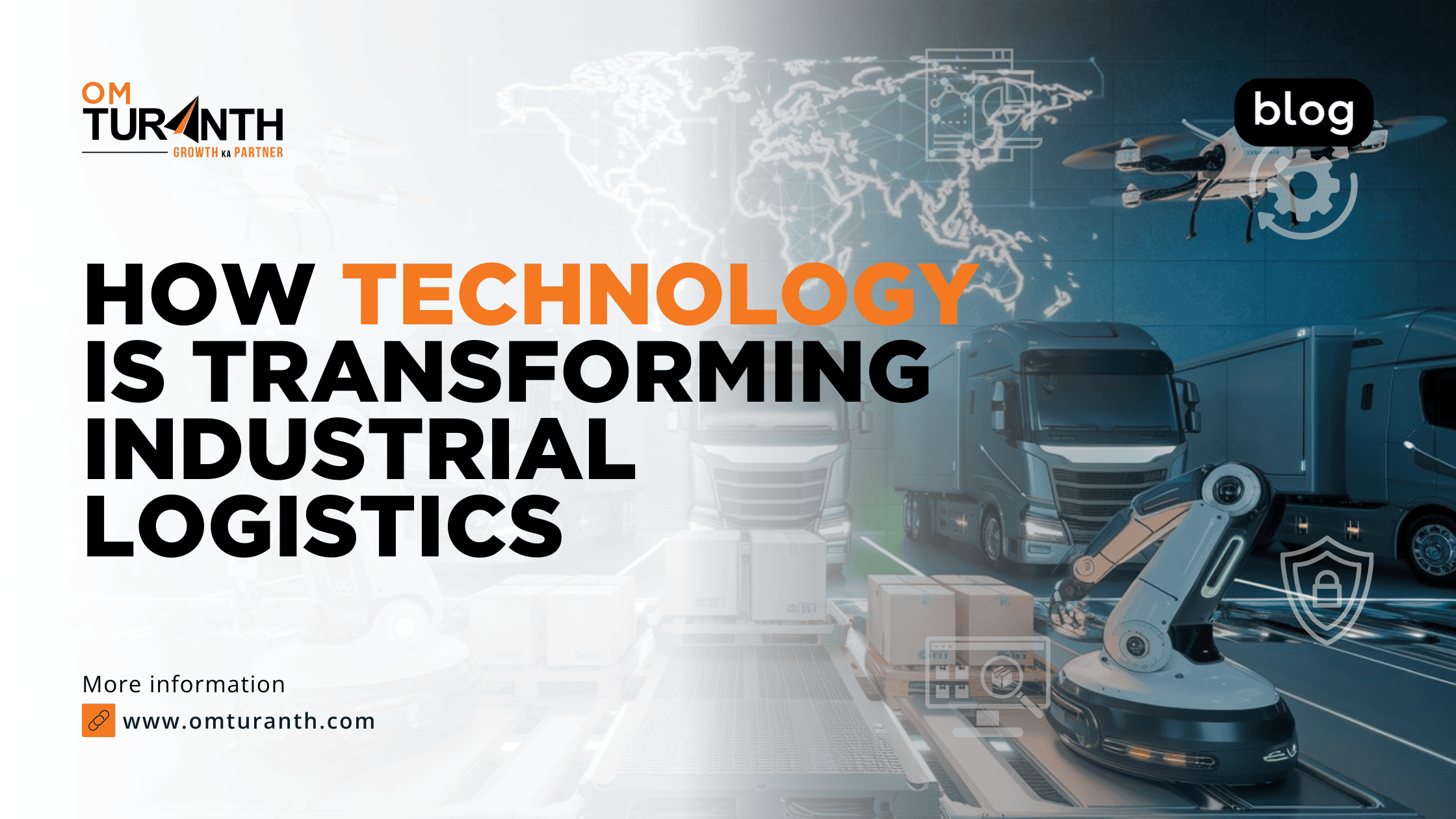How Technology is Transforming Industrial Logistics

Introduction
The logistics industry is undergoing a paradigm shift, driven by rapid technological advancements. Industrial logistics, a cornerstone of global supply chains, is no exception. The integration of cutting-edge technologies is not just enhancing efficiency but also redefining the way businesses operate.
In an increasingly competitive landscape, embracing technology is no longer optional for businesses—it is essential. Companies that adopt innovative tools and strategies are better positioned to meet customer expectations, reduce costs, and achieve sustainability goals.
In this blog, we delve into how technology is revolutionizing the industry.
1. Emerging Technology Trends in Industrial Logistics
- AI and Machine Learning for Predictive Analytics: Artificial intelligence (AI) and machine learning are transforming logistics by enabling predictive analytics. These technologies analyze historical data to predict demand fluctuations, optimize routes, and prevent disruptions, ensuring smoother operations.
- IoT for Real-Time Tracking and Monitoring: The Internet of Things (IoT) enables real-time tracking and monitoring of goods. IoT sensors provide critical data on location, temperature, and handling conditions, ensuring product integrity and timely deliveries.
2. The Role of Automation in Logistics Efficiency
- Automated Warehouses and Robotics in Operations: Automation in warehouses, including the use of robotics, is revolutionizing inventory management. Robots handle tasks like picking, packing, and sorting with precision, significantly reducing errors and labor costs.
- Benefits of Automation
- Speed: Accelerated order processing.
- Accuracy: Minimized human errors.
- Cost Reduction: Lower operational expenses.
3. Cloud Computing in Logistics Management
Cloud computing is a game-changer in logistics management, offering centralized data storage and seamless accessibility.
- Importance of Centralized Data Storage: Cloud platforms provide a unified view of supply chain operations, enabling better collaboration among teams and partners.
- Collaboration and Decision-Making Benefits: With real-time access to data, businesses can make informed decisions quickly, improving overall efficiency and customer satisfaction.
4. The Impact of Technology on Sustainability in Logistics
- Electric and Autonomous Vehicles: The adoption of electric and autonomous vehicles is reducing the carbon footprint of logistics operations. These vehicles are energy-efficient and cost-effective.
- Green Logistics with Renewable Energy Solutions: Renewable energy solutions, such as solar-powered warehouses, are paving the way for sustainable logistics practices.
5. Future Predictions for Technology-Driven Logistics
- The Rise of Drones and Autonomous Delivery: Drones and autonomous vehicles are set to revolutionize last-mile delivery, offering faster and more efficient solutions.
Conclusion
Technology is reshaping industrial logistics in profound ways. From AI and IoT to automation and sustainability initiatives, the adoption of innovative solutions is enabling businesses to stay competitive and meet evolving demands. As we look to the future, it’s clear that technology will continue to drive the transformation of logistics. Businesses that embrace these advancements will not only enhance their operational efficiency but also solidify their position as leaders in the industry.